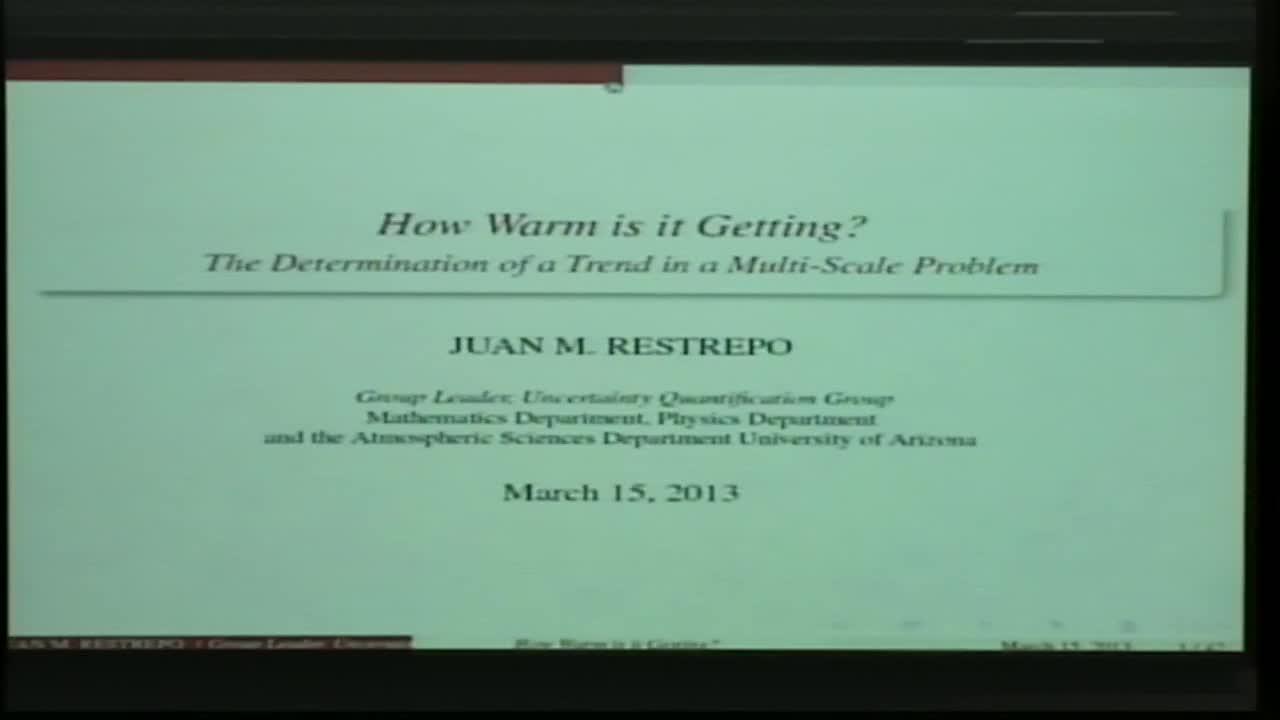How Do You Determine Whether The Earth Is Warming Up?
Presenter
March 15, 2013
Keywords:
- Time-scale
MSC:
- 93C70
Abstract
How does one determine whether the high summer temperatures in Moscow of a few years ago was an extreme climatic fluctuation or the result of a systematic global warming trend? How does one perform an analysis of the causes of this summer's high temperatures in the US, if climate variability is poorly constrained? It is only under exceptional circumstances that one can determine whether a climate signal belongs to a particular statistical distribution. In fact, climate signals are rarely ``statistical;'' there is usually no way to obtain enough field data to produce a trend or tendency, based upon data alone. There are other challenges to obtaining a climate trend: inherent multi-scale manifestations, and nonlinearities and our incomplete knowledge of climate variability. We propose a trend or tendency methodology that does not make use of a parametric or a statistical assumption and it is capable of dealing with multi-scale time series. The methodology uses intrinsic time-scale decomposition to find an adaptive decomposition of the original signal; the components of the signal are then used in the construction of the tendency. Properties of the decomposition as well as of the tendency will be discussed.
Using real and synthetic
data the tendency will be compared to other more traditional notions of a trend.
